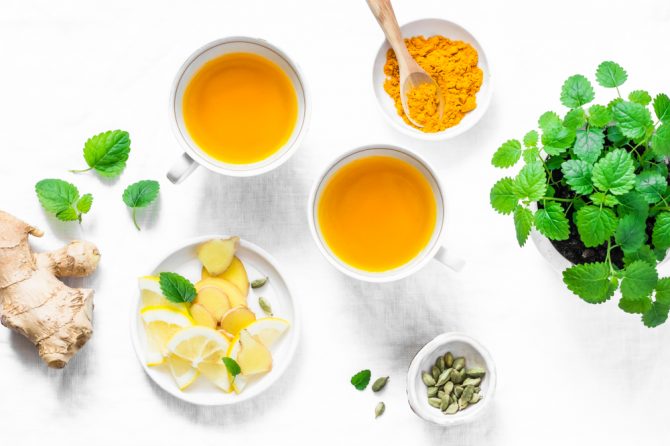Did you know your diet has a direct impact on the amount of inflammation in your body? It’s important to keep inflammation at a low level in order to reduce your risk for heart disease and stroke, along with several other diseases. In addition to your diet, other lifestyle factors also affect inflammation such as stress and lack of exercise.
When it comes to choosing the right foods, how do you know what to select and what to avoid? How do you make the right decisions to fuel your body with energy versus inflammation? It can be confusing yet there are a few basic guidelines and tips that can help you along the way.
What is an anti-inflammatory diet?
Let’s begin by defining the term. An anti-inflammatory diet is actually more of a practice versus a diet. It means including foods such as proteins, healthy fats, fruits and vegetables. Equally, it means excluding items like alcohol, sugars and processed foods. Processed foods include cereal, cheese, chips and bread – anything that’s been fortified or preserved in some way. By avoiding these foods, you’ll aid body health and gut health as well.
Two types of inflammation: acute and chronic
You may be asking yourself – how do I know if my body has inflammation and what does it feel like? Inflammation is your body’s response to anything foreign, like an injury or infection. White blood cells are sent to the damaged area and as the area heals, inflammation occurs. During the healing process, you may experience redness, pain and/or swelling. All are perfectly normal. What’s abnormal is when inflammation lasts for an extended period of time, well beyond the normal healing process.
There are two types of inflammation – acute and chronic. Acute inflammation comes quickly and has a short duration. “This cycle returns the affected area to a state of balance, and inflammation dissipates within a few hours or days,” according to experts at Harvard Medical School. Chronic inflammation starts out the same way but then lingers for months and sometimes even years. If left unchecked, “the immune system prompts white blood cells to attack nearby healthy tissues and organs, setting up a chronic inflammatory process that plays a central role in some of the most challenging diseases,” states the Harvard experts.
What foods should I choose?
By eating the right foods, you greatly reduce your risk for a host of diseases often associated with inflammation. Arthritis, asthma, cancer, diabetes, heart disease and Alzheimer’s are a few examples cited by Harvard.
To help ward off chronic inflammation, include the following foods:
- Fruits: berries, cherries, apples, avocados
- Vegetables: artichokes, green leafy veges (kale, collards), sweet potatoes, broccoli
- Nuts: walnuts, almonds, pecans, hazelnuts
- Beans: red, pinto, black
- Chocolate: dark with 70 percent cacao
- Omega-3 fatty acids: oily fish (salmon, mackerel)
Likewise, exclude the following:
- Foods with added sugar or salt
- Processed carbs (white bread, white pasta, baked goods)
- Processed snacks (chips, crackers)
- Premade desserts (cookies, candy, ice cream)
- Processed meats (ham, sausage, salami)
- Alcohol
Set yourself up for success
To help guide your decision making, follow the below tips. For a complete tip list, go to verywellhealth.
- Include 5-9 daily servings of fruits and/or vegetables
- Enjoy lean poultry, fish and beans
- Look for whole grain as the first ingredient when you choose rice, breads and pasta
Reduce salt and consider seasoning your food with anti-inflammatory herbs such as garlic, ginger or turmeric
Supplements for inflammation
When diet alone isn’t enough, supplements may provide an extra boost to the anti-inflammatory benefits of a special diet. Some of the most popular products Clark pharmacist, Nathan Worthing, generally recommends are:
- Curcumin chewables – chewables are especially helpful when dealing with oral inflammation because of their method of consumption
- Cat’s claw – this herbal remedy has shown anti-inflammation properties, and may help with inflammation and pain associated with rheumatoid arthritis
- Boswellia – also called Indian Frankinscence, has shown benefits in reducing joint inflammation
- Omega 3 fish oil – people who are at high risk for cardiovascular disease, or have had a cardiovascular event, may need a fish oil supplement to get the most benefits, since it helps deal with blood vessel inflammation
Note: Please consult with your healthcare provider or one of our pharmacists before you take a supplement.
If you’re interested in learning more about how to choose and follow an anti-inflammatory diet, please call us at 734.369.8782, Monday-Friday 10am-6pm and Saturday 10am-2pm, or email our wellness consultant at clark4yourhealth@gmail.com . We have wellness experts who can help you make the best decisions to optimize your health and avoid chronic inflammation.



